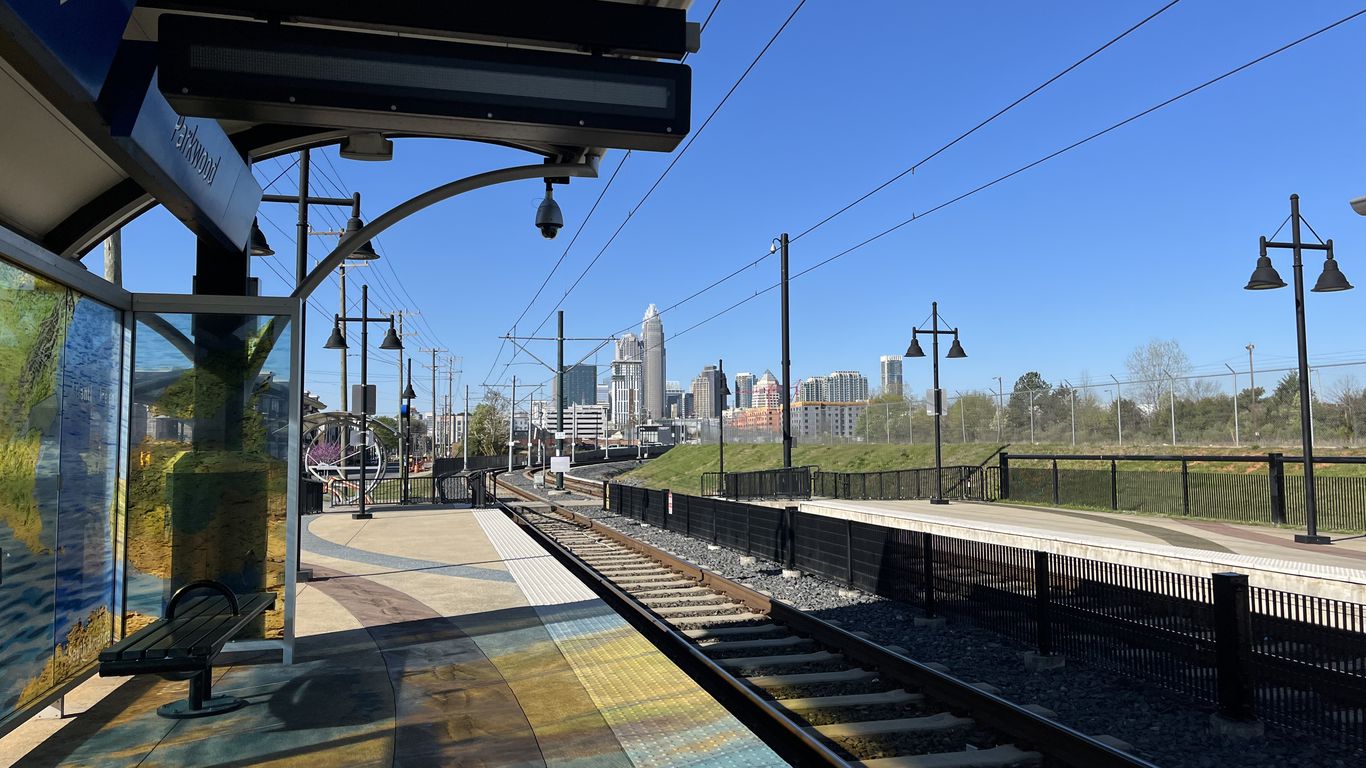Charlotte leaders this week debated using tourism taxes on transit projects
Charlotte leaders briefly debated Monday whether using hotel and restaurant tax revenue for much-needed infrastructure is worth considering — or a "terrible idea." Charlotte leaders have debated using hotel and restaurant tax revenue to fund infrastructure projects, or a "terrible idea" for transit projects. The city has been dealing with ambitious transit and mobility plans for years without a means of funding. A January article suggested that Charlotte could use the tax revenue for transit and affordable housing if leaders had political will. However, Malcolm Graham, the city's economic development committee chair, said tourism dollars should not resolve infrastructure issues. Victoria Watlington, a member of the council, argued that infrastructure investments can benefit tourism. Some council members believe that the public expects what the tourism venues and businesses it invests in, while others argue that the complex tourism revenue setup shouldn't be changed.

Published : one year ago by Alexandria Sands in Travel
Charlotte leaders briefly debated Monday whether using hotel and restaurant tax revenue for much-needed infrastructure is worth considering — or a "terrible idea." Why it matters: The city for years has had ambitious transit and mobility plans with little way to pay for them.
• Leaders have gained little to no traction with the General Assembly on a 1-cent sales tax increase that may not even rake in enough cash.
• The 2020 plan, which would cover a range of transit investments, was originally supposed to cost $13.5 billion. It is likely well beyond that price tag by now.
Context: A January article from The Charlotte Ledger suggested that Charlotte could use hospitality tax revenue on transit and affordable housing if leaders had the political will.
• That's what Asheville did. Officials there advocated for a change in the law to allow for the spending of tourism money on other priorities, mainly greenways.
What they're saying: Council member Renee Perkins Johnson floated that idea first during a committee discussion. It was another potential pot of money they could pull from, she said.
Malcolm Graham, the city's economic development committee chair, said tourism dollars should not resolve infrastructure issues (he called this a "terrible idea").
• "With all due respect to Asheville, Asheville ain't Charlotte," Graham said.
Yes, but: At-large member Victoria Watlington pointed out that infrastructure investments can benefit tourism. For example, she noted Uptown's grid turns into a "parking lot" during big events.
• "We have to consider the big picture and move away from this idea that these tourism dollars can only be applied to brick-and-mortar structures," Watlington said.
Zoom out: Vinay Patel, chair of the Charlotte Regional Visitors Authority, told Axios if council tried to change the way the tax dollars are dispersed, he'd be the first one in Raleigh trying to repeal the tax.
• "These taxes, we put on ourselves for a specific purpose: to reinvest in the hospitality tourism industry," he says.
The big picture: Mecklenburg County collects a 2% room occupancy tax to pay for the NASCAR Hall of Fame and a 1% tax on prepared food to generate its hospitality bucket. The statute requires it only be used on "tourism and tourism-related programs and activities," the Ledger noted.
• Funds are typically spent on keeping up with facilities. For example, the city committed $275 million for Spectrum Center renovations. The city is also hashing out a deal behind the scenes to renovate Bank of America Stadium, which has a $1.1 billion economic impact, per a city presentation.
The bottom line: It may be time to revisit what the public expects of the tourism venues and businesses it invests in, a few council members seem to believe.
• Others say the complex tourism revenue setup shouldn't be changed.
Topics: Taxes
